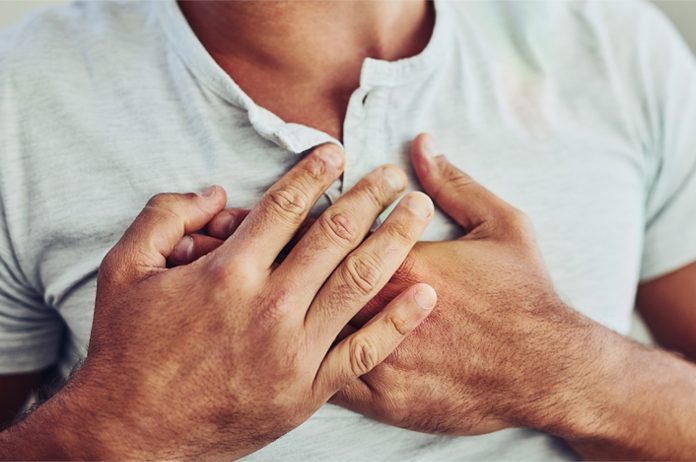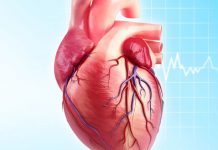Pains in the chest set off the worst alarm bells in our mind as you immediately associate it with a heart attack and death. Sometimes it’s just gas and digestion, while at other times, it can be exertion or a real heart attack.
However, how do you know chest tightness and pain is of which kind? Read on to know more.
What is a heart attack?
Simply put, a heart attack is a condition when one of the blood vessels that supply oxygen and blood to the heart gets blocked.
Usually, many little blockages scattered around the arteries increase the chances of heart attacks.
Identifying the pain and the area
When someone is having pains in the chest, it’s essential to locate the area. Is it just below the breastbone? Does the pain come on with exertion? Does popping a nitro-glycerine tablet solve the problem?
If your answer is yes, then the tightness in the chest is due to irregular blood flow to the heart, indicative of a heart attack.
So, what are some of the serious kinds of chest pains?
It’s important to know the nature of the severe kinds of chest pains to administer the required medical help. In that case, read on to detect the pains by their symptoms and area of occurrence.
1. Pulmonary embolism
One of the most common pulmonary embolism causes is a blood clot travelling up the leg to the lungs. Having a history of swelling up of legs points towards pulmonary embolism. An increasing chest pain aggravated by the inflammation around the
2. Angina and its three symptoms
Obstructive coronary artery disease results in chest tightness and pain right underneath the
These three symptoms distinguish angina from common chest pains. However, remember, these symptoms usually occur in men, while dizziness, nausea, and flatulence are the telling signs in women.
3. Pneumothorax
The symptoms of this disease are chest pains and breathing troubles caused due to lung collapse. Pneumothorax pains occur suddenly and happen to people who already have some lung condition such as emphysema. The people who had an operation done on their lungs recently may also happen to experience pneumothorax pains.
4. Aortic dissection
Such a condition presents symptoms of searing back pain accompanied by chest tightness and pain. Such a state usually involves the aorta arching forward and going down on the back, causing the feeling of tearing, consisting of the blood vessel tear.
5. Palpitation
Palpitations and their frequency of occurrence are indicators of the kind of chest pains. It’s important to know whether the patient has a history of moments of palpitations to establish a pulmonary embolism.
6. Costochondritis
The joints present in the chest are often the cause of chest tightness. These joints protect the organs like our heart and lungs that are present in the chest cavity. These joints, when inflame, we experience severe tightness in the upper chest. Even though it is not very serious, you should consult with the doctor.
7. Stress and Anxiety
Anxiety and stress both cause our breathing rate to increase. As a result, it increases our heartbeat. This can cause pain and tightness in the chest. If the stress level increases or you become more anxious, your heart condition will take a turn for the worst. If you have a complicated heart condition, you should immediately try to relax and control erratic breathing. Once you have calmed down, you should notice that the pain,
8. Hepatitis
Liver disease hepatitis also sometimes causes chest pains.

How to identify the type of chest pain?
Chest pain itself is a symptom of other illnesses. Most of the time, it is complemented along with some other signs.
These accompanying symptoms include coughs, flaring of nostrils, panting, pain in the abdomen, food regurgitation, feeling of having food stuck in your chest, indigestion, nausea and vomiting, anxiety, racing thoughts, sweating and stress.
If you are experiencing chest pain, they may be indicating some severe problem with your heart. These chest pains bring dizziness, pain in the legs and arms, coughing, heart palpitations, and shortness of breath.
A
Clotting of blood is also another reason behind this. When the blood clots, they block the arteries and thus cause dizziness when the oxygen supply is cut off.
Risk Factors
Every one of us has the risk of having cardiac diseases, but the most dangerous risk factors include the following:
Cholesterol Level
High cholesterol level increases the rate of heart attacks. The primary reason behind this is that cholesterol is one of the major components of heart plaques.
A higher cholesterol level means higher chances of allowing the A heart to progress by issuing substrates. More cholesterol level means more opportunities for these plaques to develop, increasing the chances of heart attacks.
High blood pressure
Higher blood pressure is also not a good sign. Our heart has to pump a certain amount of blood, which means it has to pump with a particular force for the blood to reach all the parts of the body.
If the blood pressure is high, the heart has to use more power to pump. If this happens for many years, the heart starts changing to get accustomed to this condition. These changes are not favourable to our bodies.
This remodelling increases the risk of heart diseases. Stress also increases pressure and thus leads to these changes.
Obesity
Being overweight increases your chances of having heart disease. Many studies have been done that has shown results that obesity indeed is a risk factor in case of heart diseases.
Over the years, studies have proven that fat is nothing but tissues that affect the body’s hormone secretion. Some hormones, for example, adiponectin, play important roles in causing blockage of arteries.
These hormones are secreted in a more considerable amount when the person has excessive fat tissues in their body. These blockages can slowly lead to heart attacks and other cardiac severe illnesses.
Some other risk factors include smoking, ageing and also diabetes. We should try our best to keep the blood sugar level within the limit and avoid smoking as much as possible. Ageing is not in our control, but we should do our best to control the other factors. Our heart is a very fragile organ. A little problem can change our lives forever. Thus, we should treat it with the utmost care.




